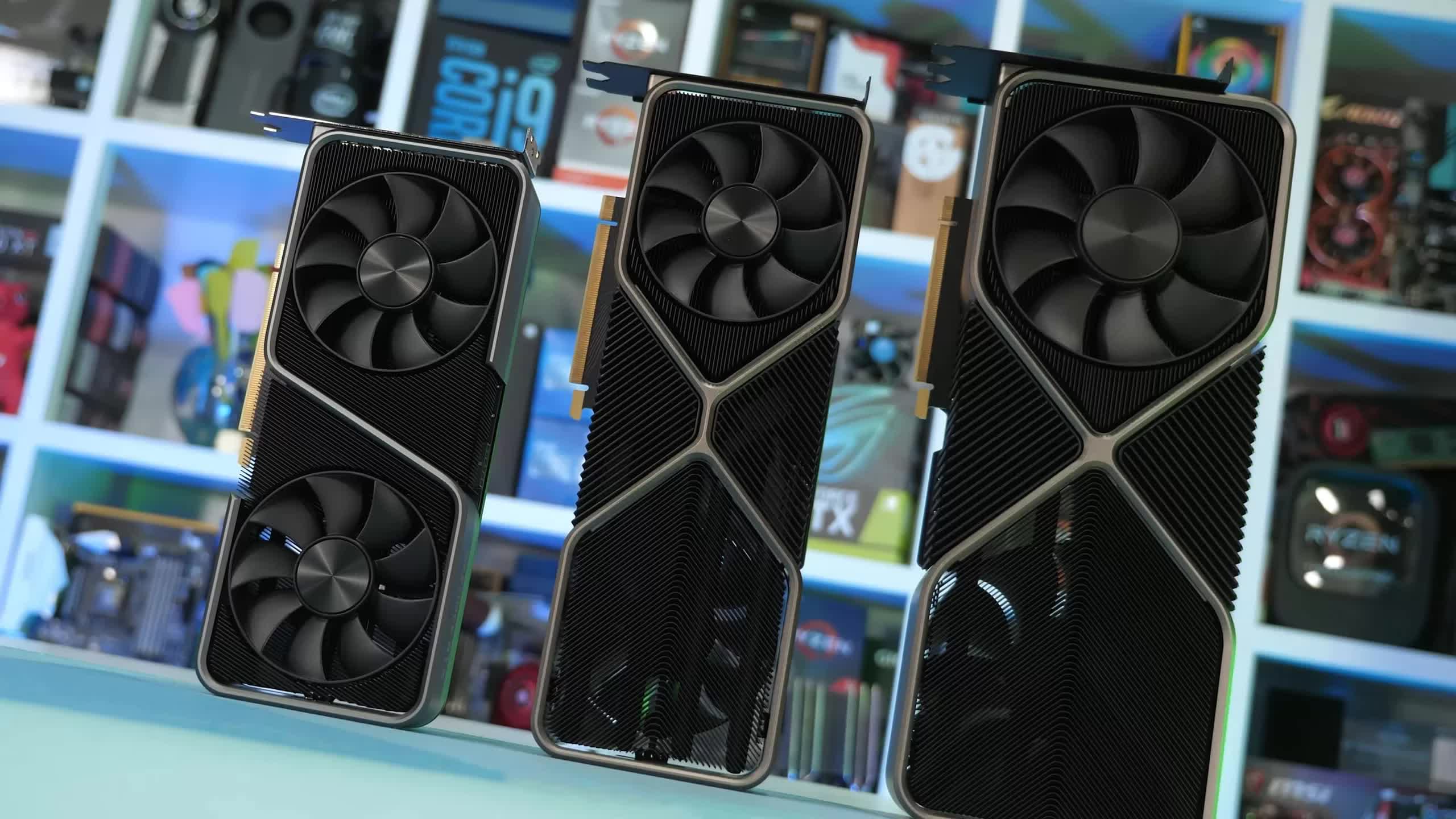In brief: AMD touted a new Smart Access Memory feature for its RDNA 2 graphics cards (Radeon RX 6000 series) as something exclusive to an all-AMD configuration, but Nvidia says it will soon enable similar functionality for RTX 30 series Ampere GPUs that work will work when paired with either an AMD or Intel CPU.
When AMD launched its Radeon RX 6000 series graphics cards earlier this month, it was shown featuring double the performance of the previous generation (AMD's numbers, not ours, yet). The RDNA 2 architecture afforded those gains relying on three nifty tricks to achieve some of the purported performance claims: a 128 MB Infinity Cache, RAGE Mode, and Smart Access Memory.
Of those three, only Infinity Cache is a true AMD exclusive. RAGE Mode is essentially an overclocking profile in the Radeon Software, and its results may vary depending on the silicon lottery.
Smart Access Memory (SAM) as a performance-boosting technology is an interesting feature that AMD says will only work when pairing a Ryzen 5000 series CPU with a Radeon 6000 series graphics card on a 500 Series motherboard. Essentially, it allows dynamic expansion of the data channel between the CPU and the graphics memory (VRAM) to improve overall performance – up to 11 percent according to AMD.

In a typical PC configuration today, only a small portion of the frame buffer (typically 256 MB) used by the GPU is exposed over the PCIe bus. Smart Access Memory is marketing speak for something called 'resizable base access register (BAR),' which is actually part of the PCIe 3.0 and later spec, and supported through the Windows Display Driver Model (WDDM) v2.
So far, AMD has created the perception that this technology was exclusive to its RDNA 2 graphics cards, but recently Nvidia told GamersNexus that its Ampere cards also support resizable BAR and achieve similar performance gains when they have it enabled. However, that will come through a future software update, with no indication as to when. AMD's RX 6000 series cards are set for release next week (reviews!!), which is a tight window for Nvidia if it wants to have the drivers ready by then.
Interestingly, Nvidia intends to make this work with both AMD and Intel CPUs and on either PCIe 4.0 or PCIe 3.0 motherboards, throwing the ball in AMD's court to do the same. This means AMD will likely be the first to support resizable BAR, but Nvidia may eventually have it working on many more configurations. And if it brings the same performance gains as it does for RDNA 2 cards to Ampere, it might change the picture we've seen in AMD's glossy benchmarks.
One way or another, it remains to be seen if you will be able to get ahold of a Ryzen 5000 CPU, RTX 3000 or Radeon RX 6000 graphics card before the year is over.
